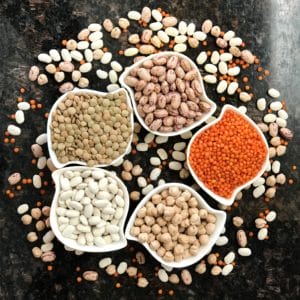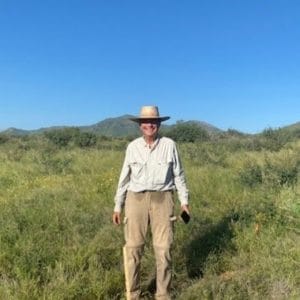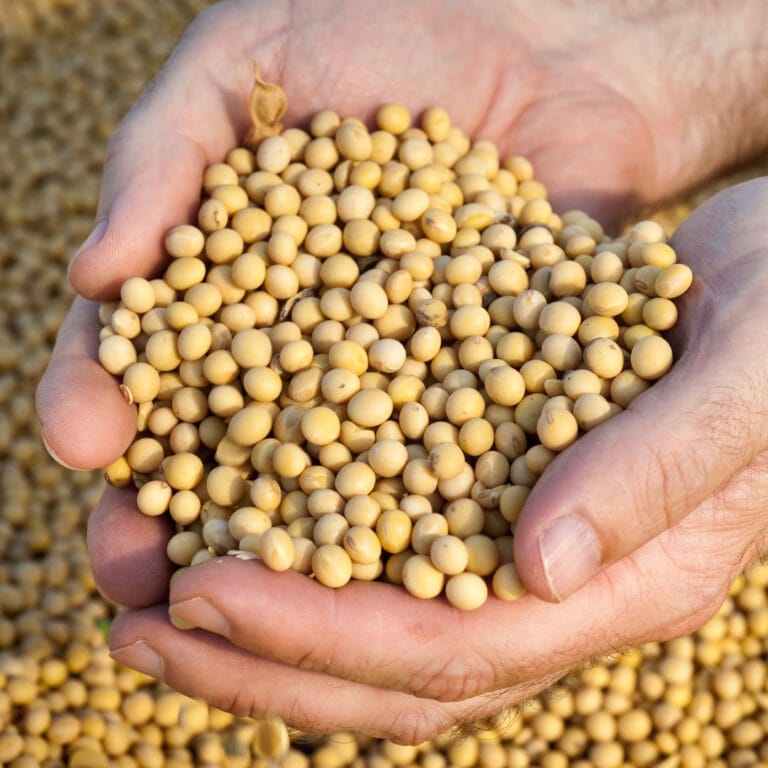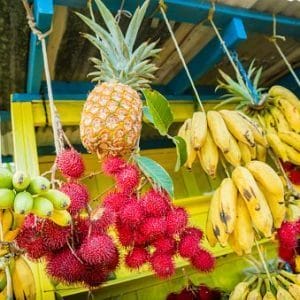The potential of pulses
Julie Ann Wrigley Global Futures Laboratory

The potential of pulses
Can you envision the value and versatility of a food that can grow in any climate, is highly nutritious, requires low water input, can self-fertilize, and has a long shelf-life? These are the prominent advantages of an ancient food called pulses.

Meet Swette Center staff member, Tucker Larson
systems, what they are currently working on, and their vision of food systems transformation. Read on for an interview with Tucker Larson, Student Worker.
SheTrades and the Women’s Entrepreneurship Accelerator event
The virtual launch of SheTrades and Women’s Entrepreneurship Accelerator (WEA) on January 18, 2022 was moderated by Amanda Ellis, the lead for global partnerships at Arizona State University’s Julie Ann

Meet Swette Center staff member, Mauricio Bellon
In this series, we’re meeting with Swette Center team members to explore their background in food systems, what they are currently working on, and their vision of food systems transformation. Read on for an interview with Mauricio Bellon, Research
Saving the seas with lighted nets
Study by ASU marine biologist shows illuminated nets save species — and fishers' backs Gill nets are massive walls of netting that hang in the water. They’re designed to allow
How to create a carbon-neutral Arizona
As climate risks from ongoing drought and rising urban heat continue to grow, Arizona will need to find innovative ways to significantly reduce CO2 emissions into the atmosphere. Many of
Kailin Kroetz appointed to the Scientific and Statistical Committee (SSC) of the North Pacific Fishery Management Council
Kailin Kroetz, Assistant Professor in the School of Sustainability, has been appointed to the Scientific and Statistical Committee (SSC) of the North Pacific Fishery Management Council. Kailin serves as the

Meet affiliated faculty Maria Cruz-Torres
Read on for an interview with Maria Cruz-Torres, Senior Global Futures Scientist in the Julie Ann Wrigley Global Futures Laboratory; Associate Professor in the School of Transborder Studies, College of Liberal Arts and Sciences.

What is bioengineered food? An agriculture expert explains
The U.S. Department of Agriculture defines bioengineered food as food that “contains detectable genetic material that has been modified through certain lab techniques that cannot be created through conventional breeding or found in nature.”
In The News; Arizona: The Economic Development Power of Clean Energy
Recently published by GreenLiving, ASU LightWorks' Bill Brandt explores the intersection of economic development and clean energy. Arizona is well-positioned for zero-carbon clean energy with more solar. The installation pace
Project Cities moves into third year with Peoria
The City of Peoria posted a lovely article about the partnership between ASU faculty and students and the city, which is going on three years! Here is a short excerpt:

Increasing food security by increasing food processing in Hawai'i
In this series, we are taking a closer look at elements in the Hawaiian food systems including innovations and issues. Hawaiian agriculture is unique to the islands and showcases a host of special challenges. Read on for Carly Wyman’s experience with Hawaiian agriculture. She is the Swette Center’s on-the-ground team member researching Hawai’i’s food, agriculture, and policy. In this series, Carly shares her insights on the unique challenges in the Hawaiian food systems.